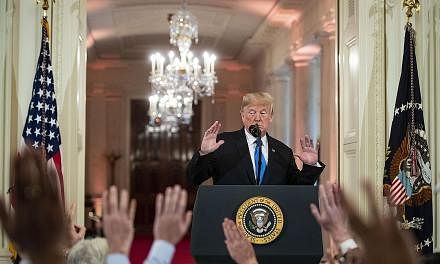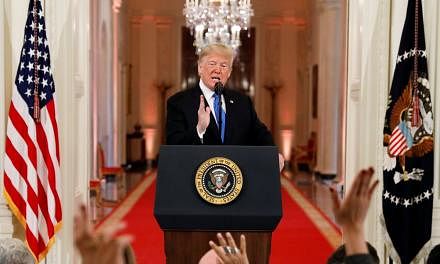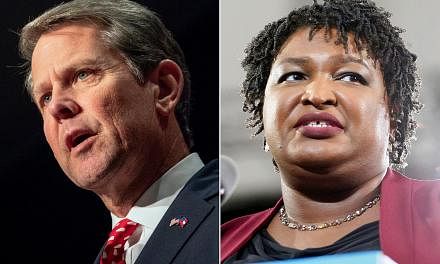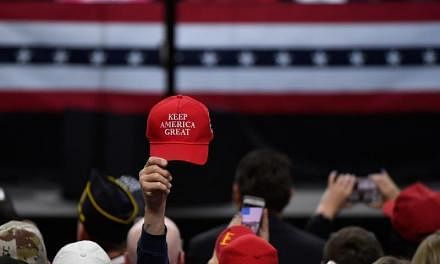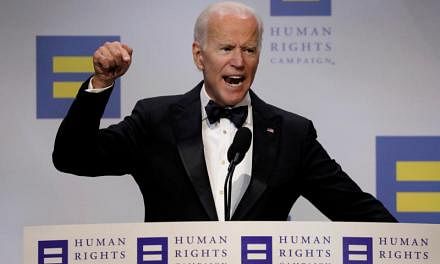The Democratic Party gaining the majority in the House of Representatives following the midterm polls means stronger oversight of the Trump administration. But that will have little or no effect on the broader direction of foreign policy under the administration.
Certainly, on the domestic front, the Democratic-controlled House will unleash investigations and subpoenas, harrying United States President Donald Trump.
It can subpoena his tax returns, which he notoriously has yet to reveal. It can revive a probe into connections of key Trump family members and campaign figures to Russia, which US officials said tried to influence public opinion during the 2016 presidential campaign. It could also investigate Cabinet members for corruption.
On the foreign front, the House can scrutinise foreign agreements and arms sales, and has control over budgets. Analysts expect it to push the administration to get tougher with Russia, Saudi Arabia and North Korea.
But the President has wide latitude on foreign policy. The Senate, which remains in Republican hands, also has more latitude than the House on foreign policy. The President has the power to make treaties and appoint ambassadors, with the advice and consent of the Senate.
Reuters quoted the Democrat in line to head the House Foreign Affairs Committee, Representative Eliot Engel, as saying it may push for congressional authorisation for the use of military force abroad - in places like Iraq and Syria, for instance.
But on some areas, like China and Iran, he acknowledged there was little that could be done to change the status quo. "I don't think we should challenge something just because it's put forth by the administration, but I do think we have an obligation to review policies and do oversight," he said.
Dr Denny Roy, senior fellow at the East-West Centre in Honolulu and a specialist in Asia-Pacific security, told The Straits Times: "The US political system is designed to place a lot of constraints on the president in domestic policymaking, but it gives the president strong foreign policy powers. Nevertheless, there are few, if any, big partisan disagreements over US policy towards the Asia-Pacific region.
"Perhaps the most likely result is that Democratic Party-chaired committees in the House would harass Trump over his North Korea policy. Trump and (Secretary of State Mike) Pompeo keep saying they are making progress, but nobody else is seeing it. But I don't expect a reversal of the tougher US posture towards China."
On the trade front, there is broad bipartisan support for Mr Trump's strategy, analysts said.
Mr Trump's erstwhile rival, Mrs Hillary Clinton, also criticised free trade deals during the 2016 campaign as the evidence showed American public opinion - partly driven by Mr Trump - turned against free trade.
And while the President has certainly led on trade issues, the Democratic Party is not out of alignment; the party has, in fact, traditionally been more sceptical of trade deals than Republicans.
On other fronts, there is much bipartisan scepticism about Pakistan and, conversely, consensus on moving the relationship with India forward. Those are unlikely to change.
US and Indian interests are very aligned, said Mr Daniel Twining, president of the International Republican Institute who works closely with Congress, at a talk on post-election foreign policy at the Stimson Centre last week.
There is also expected to be little opposition to Mr Trump's hardball tactics with Iran - pulling out of the Iran nuclear deal and reinstating wide sanctions on Teheran. Mr Engel, in fact, opposed the deal.

